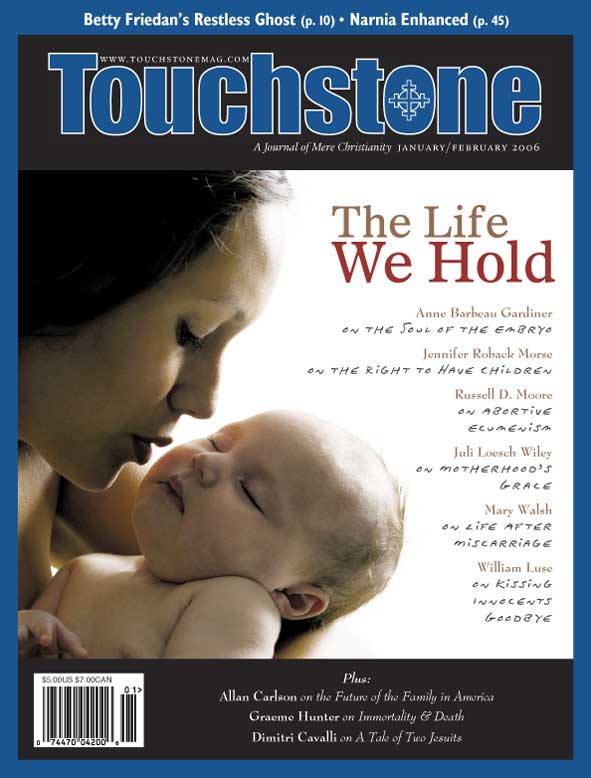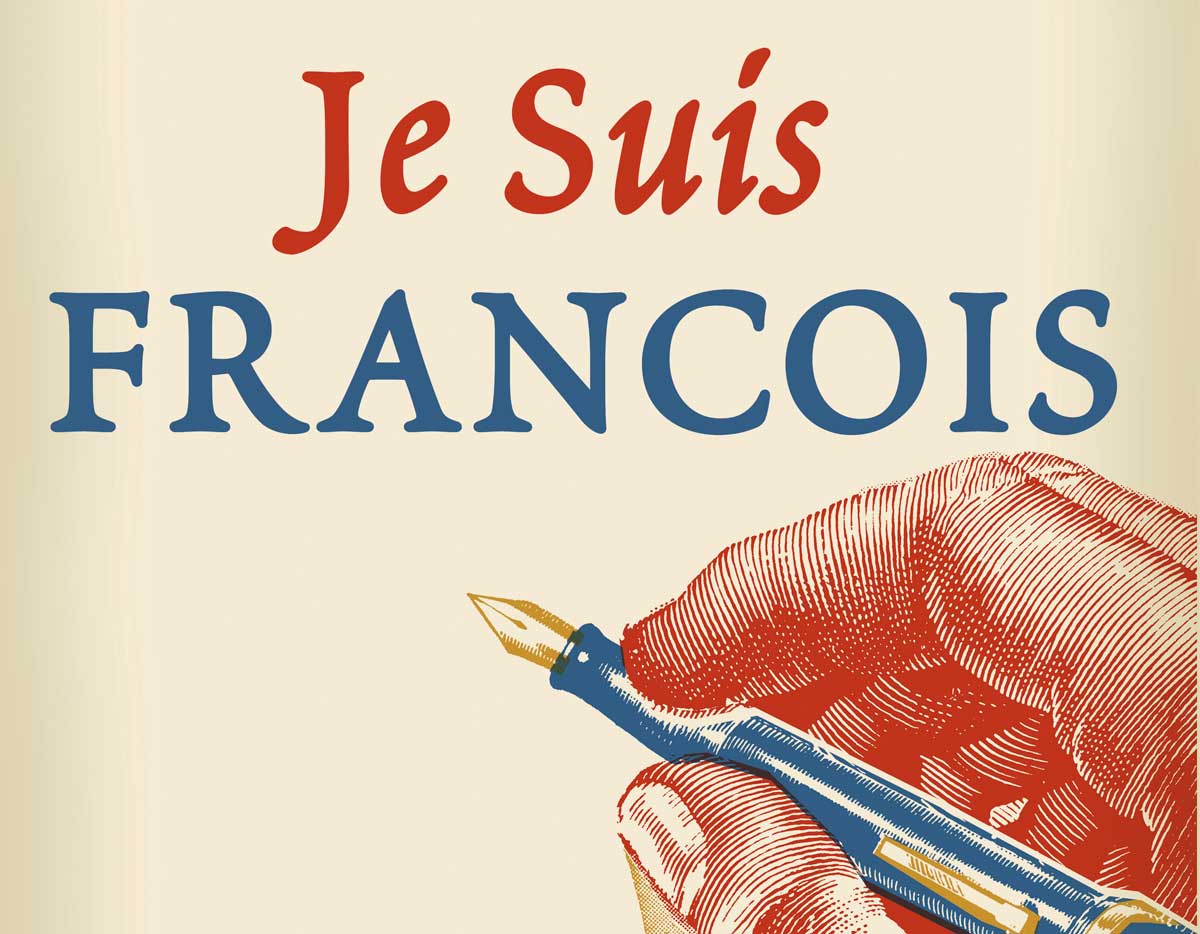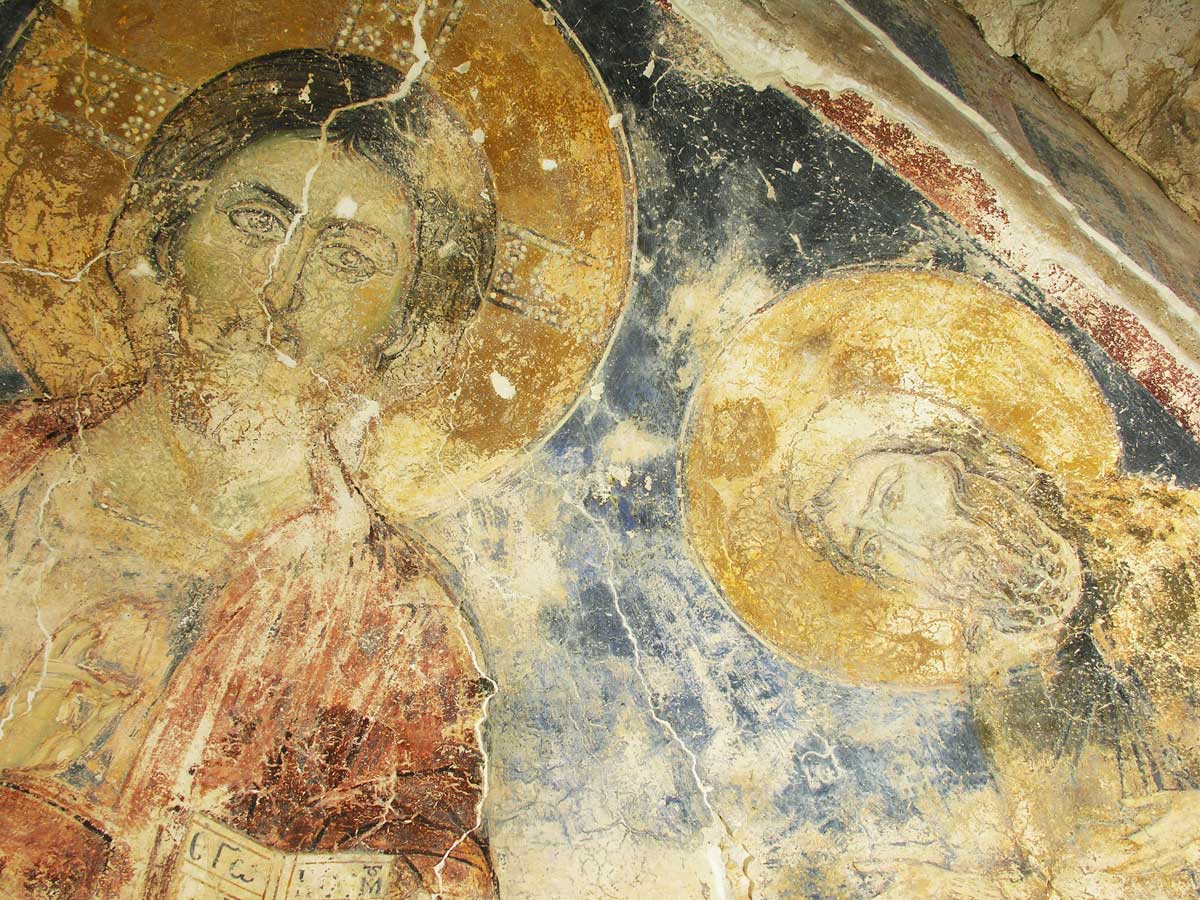A Tale of Two Jesuits
Dimitri Cavalli on Why the Media Celebrated One & Ignored the Other
On May 9, 2005, the Reverend Thomas Reese, S.J., announced that he would resign as the editor-in-chief of America, the highly respected Jesuit weekly magazine. Many liberal Catholics blamed the newly elected Pope Benedict XVI with forcing Reese out because he published articles questioning the church’s teachings and the Vatican’s policies on such topics as same-sex marriage, homosexual priests, and denying Holy Communion to pro-abortion Catholic politicians.
Several months later, many details about Reese’s resignation still remain sketchy. It is known that Benedict XVI, when he headed the Vatican’s Congregation for the Doctrine of the Faith (CDF) as Joseph Cardinal Ratzinger, complained about certain articles that America had published. But did the new pope actually force Reese out? The Reverend Jose M. de Vera, S.J., a spokesman for the Society of Jesus in Rome, was quoted by the Catholic News Service as saying that Reese “tendered his resignation. It was not imposed, contrary to what was written.”
Reese’s only statement on the controversy, which was posted on America’s website, did not shed any light on why he decided to resign. “I am proud of what my colleagues and I did with the magazine, and I am grateful to them, our readers, and our benefactors for the support they gave me,” Reese said. “I look forward to taking a sabbatical while my provincial and I determine the next phase of my Jesuit ministry.”
Father Reese is hardly a martyr, even if Cardinal Ratzinger did ask for his removal. Unlike some other Jesuits who have gotten into trouble with their superiors, he has not been barred from teaching, publishing, or even speaking to the media. Last July, Reese joined the faculty of the Jesuit-run Santa Clara University in California.
Rallying Around Reese
Whatever Reese’s motivations for resigning are, his departure outraged many liberal Catholics, who expressed fears of a new Vatican crackdown on the free discussion of issues important to the future of the church.
“As a consequence,” Commonweal, the lay liberal Catholic magazine, warned in a May 20 editorial, “the first thing many Americans are now likely to associate with Pope Benedict XVI’s papacy will be yet another act of Vatican repression. Does this mean that the zeal with which then-Cardinal Ratzinger harried theologians while head of the CDF will continue during his papacy?”
Some critics argued that Reese did nothing wrong. In an interview with New York Newsday, the Reverend Richard McBrien, a professor of theology at the University of Notre Dame and a prominent dissident theologian, defended Reese. “[He] has been very careful to be even-handed, fair-minded, and restrained in any comments he’s ever made, either in the run-up to this papal election or in his books,” McBrien asserted. “I would be astonished if anyone except extreme right-wingers would be offended by anything he’s either written or said.” He told the Associated Press that Reese’s removal implied that the Vatican and its American allies “don’t think it’s possible to discuss both sides.”
Others spoke more dramatically. In a press release on its website published the same day as Reese’s announcement, the Association for the Rights of Catholics in the Church (ARCC), a dissident organization led by long-time dissenting theologian Leonard Swidler, called on the pope
to recall his childhood under a fascist regime that ruthlessly stifled freedom of the press and to use his authority to allow Jesuit superiors to reinstate Fr. Thomas Reese, S.J., as Editor of America Magazine. . . . Unless and until this injustice has been officially rectified, ARCC calls on all truth-seeking Catholics to withhold their annual Peter’s Pence contribution [a donation to the Vatican] and to put a note in the envelope, indicating why there is no donation and where the money is being sent instead.
The media gave Reese’s resignation extensive attention. The wire services such as the Associated Press and Reuters picked up the story. The New York Times published an article on the front page. The television networks, PBS, cable television stations, and National Public Radio (NPR) covered it.
Not surprisingly, most of the media coverage was sympathetic to Reese. Many of the stories and segments quoted liberal Catholics, who criticized the Vatican for forcing Reese out and warning of a new wave of censorship coming from Rome. Tom Roberts, the editor-in-chief of the liberal National Catholic Reporter, told Newsday that Father Reese was “forced out” by the Vatican, and condemned the action as “an appalling affront to intelligent discourse.”
Into Exile
Three years earlier, another prominent Jesuit priest was disciplined for voicing controversial opinions. A theologian who studied for his doctorate under then-Father Ratzinger in Germany, the Reverend Joseph Fessio, S.J., co-founded Ignatius Press in 1978 to publish translations of the works of European Catholic theologians, philosophers, and authors. Under his leadership, it has become one of the top publishers of Catholic literature in the United States, including Catholic World Report, a monthly news magazine, and a journal called the Homiletic and Pastoral Review.
Several years ago, Fessio became disillusioned with the Jesuit-run University of San Francisco, where he taught theology and founded a great books program called the St. Ignatius Institute. He publicly criticized the university for overhauling the institute and taking “un-Catholic” actions such as hiring an openly homosexual dean and staging Eve Ensler’s sexually explicit play, The Vagina Monologues, during Lent.
In March 2002, Fessio announced the formation of Campion College, a two-year Catholic institution that would provide an alternative to the University of San Francisco. Fessio’s actions immediately brought down the wrath of his Jesuit superiors.
On March 11, 2002, the Reverend Thomas Smolich, S.J., the provincial of the California Jesuits, sent Fessio a letter telling him that “Campion College was not and is not part of your assignment from the Society of Jesus, as determined by me as your provincial.” Smolich continued, “You are to have no role, public or private, in Campion College, just as Campion has no relationship with the Society of Jesus.”
In what was clearly a punishment, Smolich assigned Fessio to serve as chaplain of Santa Teresita Hospital in Duarte, a small town in southern California. Smolich allowed Fessio to continue running Ignatius Press, but warned him that it could be taken away from him if it was not kept separate from Campion College. Fessio complained that his superiors were trying to silence him and get him out of the way.
How much media attention did the exile of one of the most prominent Catholic publishers in the United States receive? The wire services ignored it. There was nothing in the New York Times. In fact, the only mainstream newspaper that covered Father Fessio’s “reassignment” was the San Jose Mercury News. The television networks, PBS, the cable news shows, and NPR showed no interest.
What about liberal Catholics who have rallied to Reese’s defense? Both Commonweal and the National Catholic Reporter were silent on Fessio’s exile. One would think that Reese would have come to the aid of his fellow Jesuit, but America passed on the story as well. (It might have been problematic for America even to discuss the Fessio case, since Smolich is also Reese’s superior within the order.)
The often-quoted Richard McBrien made no statement. The ARCC, which was established by Catholic dissidents in 1980 in response to the Vatican’s removal of Father Hans Küng’s license to teach Catholic theology, issued no press releases.
After a public outcry from many conservative Catholics, in June 2002 Smolich allowed Fessio to accept an offer to serve as the chancellor of Ave Maria University in Naples, Florida, where he is today.
A Double Standard
Why was the liberal Reese portrayed as a martyr for his alleged dismissal, while the real exile of the conservative Fessio was practically ignored?
Unlike Reese, Fessio has never been popular with liberal Catholics, including some of his fellow Jesuits, who resent his influence and unapologetic defense of the church’s teachings. A Vatican loyalist, he does not fit the mainstream media’s image of a contemporary martyr. By contrast, the Reese episode gives liberal Catholics and their allies in the secular media another opportunity to criticize the Vatican and to raise doubts about the new pope, whose commitment to Catholic orthodoxy offends their sensibilities.
One would take more seriously the demand of liberal Catholics for tolerance and greater democracy within the church if they did not turn a blind eye to repressive measures used by liberals and dissidents who have obtained positions of power within the church to harass, intimidate, and silence conservative Catholics—if, that is, they were truly liberal.
Dimitri Cavalli is an editor and writer in New York City. He is planning to write books on both Pope Pius XII and Joe McCarthy, the late manager of the New York Yankees.
subscription options
Order
Print/Online Subscription

Get six issues (one year) of Touchstone PLUS full online access including pdf downloads for only $39.95. That's only $3.34 per month!
Order
Online Only
Subscription

Get a one-year full-access subscription to the Touchstone online archives for only $19.95. That's only $1.66 per month!
bulk subscriptions
Order Touchstone subscriptions in bulk and save $10 per sub! Each subscription includes 6 issues of Touchstone plus full online access to touchstonemag.com—including archives, videos, and pdf downloads of recent issues for only $29.95 each! Great for churches or study groups.
Transactions will be processed on a secure server.
more from the online archives
calling all readers
Please Donate
"There are magazines worth reading but few worth saving . . . Touchstone is just such a magazine."
—Alice von Hildebrand
"Here we do not concede one square millimeter of territory to falsehood, folly, contemporary sentimentality, or fashion. We speak the truth, and let God be our judge. . . . Touchstone is the one committedly Christian conservative journal."
—Anthony Esolen, Touchstone senior editor









